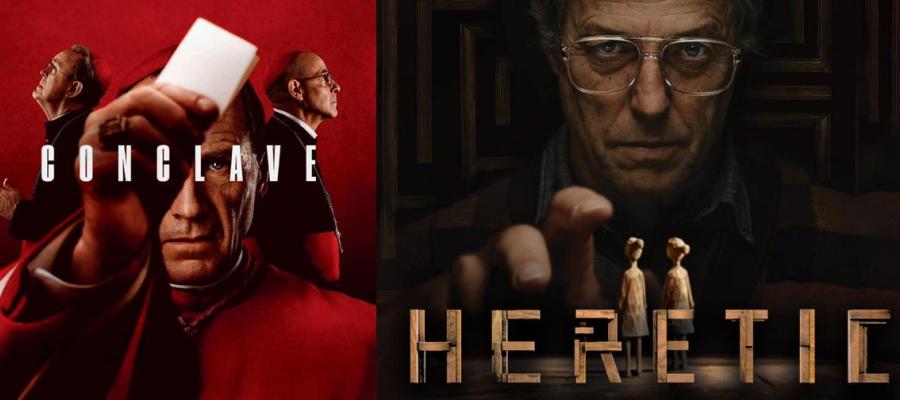The Odyssey in Plain English
01
Dec 2017
The first woman to translate The Odyssey, Emily Wilson, tells the famous story of Odysseus, Homer's cunning Trojan war hero, in a radically different way. She tells it in plain English. Starting the epic with "Tell me about a complicated man," Wilson departs from stilted translations of the original Greek. She replaces Robert Fagles's translation ("whores") for "dmoai," the female slaves whom Odysseus slaughters at his homecoming, with the more accurate translation "girls." Wilson's translation is direct, and her effort raises important...
Read moreIs there a Right to Sex?
08
May 2018
Most of us would think that straight men who demand the right to sex are motivated by a patriarchal sense of entitlement. Indeed, the claim that people have a right to sex can be a dangerous ideology, one that is used to justify rape and other hate crimes against women. One paradigmatic example of this was Elliot Rodger's killing spree back in 2014 when he shot multiple people, most of them women, because he was angry at women for refusing to sleep with him. As a reaction against this claim and its misogynistic implications, we may naturally argue that nobody is entitled to sex with others....
Read moreNegotiating Identities: The Crash Solution
14
Jun 2005
Thanks very much to Anthony Appiah for being our guest on the show last week. You can check out the episode here. I meant to be blogging about this one awhile back, but the rest of my life intruded, unfortunately. I'm about to head off to Australia for seven weeks, where I'll be a visiting fellow at the Australian National University. I'll actually do three of the shows from down under. That's going to be tough. I'll have to be in a studio there at 4.00 AM. Now that is dedication. But back to the topic...
Read moreConfessions of a Cassandra
31
Jan 2017
This essay is a lot more personal than any of my previous postings on this blog—or, indeed, any my writing anywhere else. It’s personal because it concerns a topic that is so important to me that I cannot bear to shroud it in a pretense of academic detachment and so overwhelmingly significant that the thought of writing about anything else seems grotesque. On June16, 2015 Donald Trump descended the escalator to the lobby of his eponymous tower to announce that he was throwing his hat into the presidential ring. This announcement was the source of great amusement among my...
Read moreArt, Origins, and the Fearless Girl
25
Apr 2017
Have you ever seen a beautiful television spot, only to have it ruined by learning it’s an advertisement? Have you ever been delighted by a musical performance, only to learn the singers were lip-synching? Have you ever seen a heart-melting painting and then found out it’s fake? Such experiences are common but strange. Like jilted lovers, we feel played. Something about the origins or intentions behind the pieces ruins them. But is that the right response? From another perspective, it seems rational to say, “Well, I suppose rapacious oil companies can make beautiful advertisements after all...
Read moreThe Doomsday Doctrine
05
Aug 2019
This week we’re thinking about Nuclear Doomsday. But why worry about a nuclear doomsday now? The Cold War is over. At its height we had thirty thousand warheads pointed at the Soviets, they had forty thousand pointed at us – but we’re each down to a fraction of that. A climate doomsday seems much more likely. For one thing, there are still enough nuclear weapons in each arsenal to incinerate the earth, cause a nuclear winter, and extinguish practically all life on earth. But why not take comfort in the fact that exactly one country has ever seen fit to use a nuclear weapon...
Read moreCan the Laws of Physics Change?
12
Aug 2017
What if gravity suddenly stopped working? Or what if e gradually came to equal mc3 rather than mc2? Could the fundamentals of physics really change? Or Is this just the stuff of science fiction? That’s the question we’re addressing this week on Philosophy Talk. Now I must admit that part of me wonders whether this idea even makes sense. I admit, though, that we can surely imagine such a thing. Early in the history of the cosmos, the fundamental constants have one set of values. Later, they have a different set. No doubt that would be surprising, but the idea itself...
Read moreA Cat's Life
24
Jul 2020
Listener Jacob B. in the UK got in touch with a great question on our recent "Pet Ethics" show. He writes: I am preventing my cat from staying out at night by limiting her food during her day so to make sure that she is hungry by night and returns around 11pm. It is for safety since foxes are roaming the area. Cats are nocturnal and I wonder whether I am depriving my cat of essential part of cat life experience. I asked Ray to respond to Jacob's question. Here's what they had to say: A lot of animal welfare frameworks designed for captive animals (such as zoo animals) take it for granted...
Read moreWho Wants to Be a Stoic?
01
Feb 2022
What can we learn from the Stoics about living a good life? They offer us a set of powerful strategies for becoming indifferent to pain, suffering, and even death. But can we really live by those strategies? And if we could, would we really want to? This week we’re thinking about the Stoic philosophy of Roman emperor Marcus Aurelius. Marcus is probably best known for the Meditations, a book designed to help him remember his (largely Stoic) beliefs, arguments, and slogans, so he could remain tranquil and act kindly under any conditions. The project is compelling, the slogans brilliant...
Read moreCreepy Converts and Pugnacious Priests
27
Feb 2025
It's that time of year again, when all eyes turn to Hollywood as the Academy of Motion Picture Arts and Sciences presents its awards for artistic and technical merit in film, and all ears turn to the our special episode celebrating the most thought-provoking movies of the past year—the Dionysus Awards. This year, Josh and regular guest co-host Jeremy Sabol considered nominations from two return guests: Francey Russell from Columbia University, who proposed Pedro Almodóvar's The Room Next Door and Mike Leigh's Hard Truths for Most Moving Meditation on Fierce Female Friendship...
Read moreThe Problem of Other Minds
28
May 2014
The philosophical problem of other minds goes like this. I know that I have a mind, that is, feelings, sensations, thoughts and the like, in a very direct way. I am directly aware of what goes on in my own mind. But how do I know that something like this goes on in other people? I am not directly aware of your thoughts and sensations. So how do I now that anything is going on in you, like what I know is going on in me, which I call “consciouisness” or “mind”. And, just to be polite and assume you do have a mind, vice versa? One thing is...
Read moreWar, Sacrifice, and the Media
10
Sep 2011
In honor of the 10th Anniversary of 9/11 and in lasting solidarity with all the victims of both the original tragedy and its costly and controversial aftermath, we thought we’d rebroadcast our episode on War, Sacrifice, and the Media this week. We don’t seem to have blogged for the original episode – somehow that got sacrificed. But here is a fresh one for your consideration. Whenever America is involved in a war in a distant land, we’re often involved in a war, closer to home. This second war isn’t fought with tanks or bombs or missiles...
Read morePhilosophical Wife Swapping
27
Apr 2009
I've never seen the reality TV show Wife Swap. And I have to admit that I find the title alone quite a bit off putting. Just the title alone makes me think that the show must be somewhat sexist and retrograde. So I was quite surprised and more than a little skeptical when we at Philosophy Talk got an e-mail from a casting producer for the show requesting our help in finding parents who, as she put it, "take on philosophical ways of thinking and reasoning when it comes to living their lives, raising their children and navigating the world around them...
Read moreIs White Privilege a Distraction?
13
Feb 2016
This week, we're thinking about White Privilege and Racial Injustice. Everybody knows that the US has a long and sorry history when it comes to racial injustice. It also has a long history of privileging the needs, concerns and narratives of white people over those of people of color. But how exactly are white privilege and racial injustice related? That’s our question for this week. Some might think the the connection is completely obvious. Ask yourself how many times have we had to witness the tragedy of unarmed black men and boys getting shot and killed over practically...
Read moreForbidden Words
11
Mar 2015
This week our topic is Forbidden Words! Now when we say forbidden, we don’t mean legally forbidden. This is, after all, still the friggin’ United States of America. And last I looked, we still enjoy the First Amendment right to say whatever we darn well please. We’re talking about morally forbidden words – words that hurt, insult, and demean. Of course, there is that old saying, “Sticks and stones may break my bones, but words will never hurt me!” But that clearly seems wrong. Think of racial epithets, like...
Read moreWhat Makes a Monster?
22
Feb 2018
It's been 200 years since we've been captivated by Mary Shelley's tale of a man creating a living being. From the moment the creature is "born," its creator, Victor Frankenstein, calls it a monster. But why call it a monster? Because of its ugliness? Better yet, why did the outcome of Frankenstein's prized experiment have to turn out so repulsive? This podcast explores among other things the possibility that Frankenstein's education was monstruous to begin with, and hence, anything produced from such monstrous foundation was equally monstrous. Frankenstein was fascinated...
Read moreEnlightenment Peddlers
12
Jul 2018
This is the final installment of my series of essays on the so-called “intellectual dark web”—a loose confederation of talking heads, some of whom have a mind-bogglingly massive following, who promulgate philosophical, political, and psychological ideas, either primarily or entirely outside the formal academic universe (and who generally claim to have been driven to do so because academia is fatally infected with “political correctness” and is hostile to the full-blooded, open-minded, heroic pursuit of truth). Because the intellectual dark web thrives on consumer popularity rather than peer...
Read moreEducated Insolence
27
Feb 2006
by Tony Veale Stand-up comics often bemoan the fact that "everyone's a f**king comedian!", and its true: every one appreciates humor (to some degree) and most are capable of generating some form of spontaneous humor. But this very ubiquity makes humor harder, rather than easier, to understand formally, since humor assumes many guises and operates with subtle differences in myriad contexts. A whole host of philosophers and other thinkers have proposed theories of humor throughout history, though none are wholly successful, since each tends to emphasise one favored aspect of humor over others....
Read moreNehamas to Guest Blog
09
Mar 2005
We here at Philosophy Talk: The Blog are please to announce our first guest blogger, the distinguished philosopher of art, Alexander Nehamas of Princeton University. Alexander will be our guest on next week's episode. We think it'll be a fun show and we look forward to hearing from Alexander. We hope that Alexander is the first in a long line of distinguished guest bloggers. Enjoy!
Read moreQueerness
04
Jun 2017
Is queerness something that all lesbian, gay, bi, and trans people have in common? Is it a sexual identity, a political identity, both, or something else entirely? No doubt we are all familiar with the term, but coming up with a definition for “queerness” presents quite a challenge. Sometimes “queer” is used as a slur, yet there are many people who proudly self-identify as queer. It’s not so unusual for slur words to get re-appropriated by the group targeted by the slur, but “queer” stands out in a certain way. Not only has the term been reclaimed as an identity, but since the 90s, we’ve also...
Read moreWhat Do We Owe Future Generations?
13
Feb 2019
Exactly how much should we care about future generations? It seems obviously wrong to say that we shouldn’t care about them at all. We would not be doing justice by them if we decided to just live it up and let them figure out how to deal with whatever mess we left behind on their own. It also seems wrong to say that we should care about them as much as we do about ourselves. After all, they don’t even exist—at least not yet. Future generations are merely hypothetical, and hypothetical beings surely do not matter as much as existing beings. Right? It’s also worth noting...
Read moreReality TV: Ethics or Entertainment?
05
Jul 2017
To say that reality TV shows can be "morally fraught" in their practices is an understatement. Publicizing and, in essence, commodifying people's lives, reality shows raise ethical issues by intruding upon their particpants' privacy and by manipulating their participants' behavior—all for the purposes of inciting gossip, tears, and drama. But are reality shows so morally vexed that they should be abolished? Or, if they are to stay, under what practices and ethical limitations may reality shows justifiably operate? This paper from the University of Brussels analyzes the treatment of...
Read moreRough Humor
29
Jan 2020
One current culture war in North American society concerns rough humor. I say “rough,” because I want to be neutral as to whether instances of it are also offensive, since whether this or that instance of it is offensive is one of the things at issue. Rough humor is a broad tent. But its jokes, skits, writings, cartoons, etc. all have something in common: they deal with culturally sensitive issues in a way that bumps into or violates taboos, such as taboos on using certain words, or on talking about or mocking certain things. Now unlike many, I don’t want to defend...
Read moreFinding Minds in a Material World
11
Dec 2020
How did minds first evolve out of matter? Could consciousness have evolved more than once? How can we tell which living things have minds? Is there something it’s like to be a crab and live a crab's life? This week we’re thinking about “Minds and Matter.” Minds are a curious thing! Here we are, creatures of flesh and blood, but somehow we have conscious experiences. We perceive the world around us, and we have a sense of ourselves as agents that can move and act in the world. How do things like bodies possess these curious things we call minds? I’m not going to attempt to...
Read morePerverse Desire
18
Aug 2023
Why do some people have a strange desire to do weird things for no (good) reason? There's something fascinating about kids who eat laundry soap as part of a “challenge,” or people who deliberately loiter on the steps with the “no loitering” sign, just because the sign is there. These are curious things to want to do. So what are people getting out of them? Some might say there’s nothing to explain here. Sometimes you just want to do weird things, and that’s it; no reason required. Still, if you find yourself eating laundry soap, doing untold damage to your internal organs, it sure seems like...
Read more






















